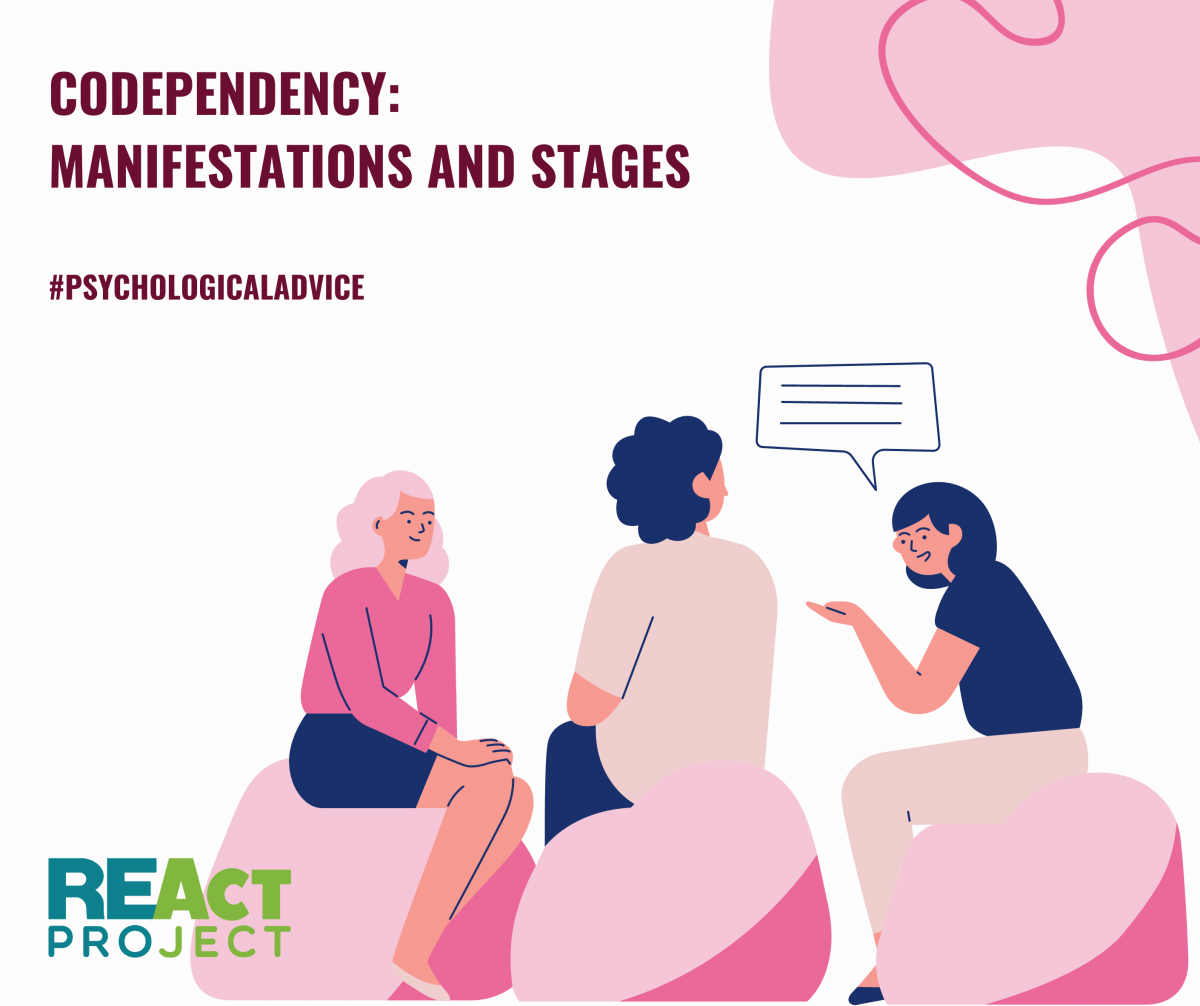Despite a large number of articles and materials, the subject of codependency still remains a societally “inconvenient” one.
It is not yet officially recognized by the International Classification of Diseases, but it is difficult to imagine addicts’ relatives and close ones as healthy physically and psychologically. Codependency is the cause of many disorders that can wreck a person’s life and mental health. Its manifestations include:
- A codependent person is constantly fixated on their sick relative;
- Aggressive behavior, which is shown in maintaining a strict control over the addicted person’s movements, actions, and contacts;
- Loss of control over their emotions;
- Self-deception, which manifests itself in the inability to accept and face the problem at hand;
- Feelings of guilt, shame, self-accusation for someone else’s addiction issues;
- Increased resistance to internal psychological pain;
- Lowered self-esteem;
- Perceiving the patient as a “little child,” taking on responsibility for the addicted person’s actions and pinning the blame on yourself;
- Self-destructive behavior and loss of ability to think in realistic terms;
- Use of psychoactive substances together with the addicted person (motives to the effect that “you do anything to keep the child happy and safe”);
- Persistent hatred of the patient, which leads to nervous exhaustion and prolonged depression.
The above symptoms can easily develop into severe psychiatric disorders.
As a medical condition, codependency has several stages of development:
- Anxiety. Manifested by the codependent person’s hyper vigilance. They may deny the problem or make excuses for the behavior concerned. Also possible are minor memory lapses or increased resilience to emotional stress.
- Self-protection. The codependent person has a sense of increased responsibility for the patient’s state and actions. The codependent person usually acts as a pursuer, who persuades, threatens, or uses pressure to convince the addict of the need for treatment. Memory lapses can become more frequent.
- Adaptation. Prevalent feelings of shame and guilt are gradually being replaced by anger and irritation. Attempts at exercising control are intensifying. Under the patient’s manipulative powers, “the role of a victim” is taken on, with the result that the codependent person constantly blames themselves for the addict’s problems. There emerges a feeling of resentment and anger toward the patient.
- Depletion. Resentment, frustration, and anger are transformed into a bitter hatred for the addicted person. Most commonly, in this phase chronic psychological and physical illnesses resurface with a vengeance under the impact of constant stress.
- Recovery. This outcome is achieved only if the codependent person separates themselves from the addict’s life and problems, focusing on their own goals and needs.
Doctors, substance abuse specialists, psychologists, and psychiatrists unanimously assert that a successful outcome can be achieved only if both the addicted person and the co-dependent family members undergo psychological therapy.
Practice shows that people surrounding the addict may not understand the underlying problem and often are reluctant to admit the truth about their condition.
Read the next section to learn about how to overcome codependency.


